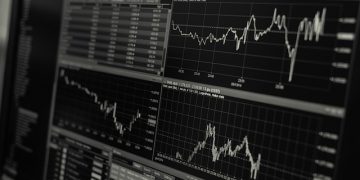Biotechnology groups listed in Hong Kong have tapped funds at a record pace in 2021 as buoyant markets and rising interest from global investors bolster the Asian bourse’s challenge to Wall Street’s hold on the sector.
Follow-on equity issuance by biotech companies listed in the city has hit $4.1bn this year, according to data provider Dealogic. That is equivalent to more than 60 per cent of the total for all of 2020.
The flurry of follow-on issuance — share sales by groups that are already listed — comes as Hong Kong seeks to break the dominance of New York’s Nasdaq as the global hub for biotech finance. Groups in the industry have raised $6.3bn via follow-on funding on the US exchange in 2021.
Hong Kong has sought to capitalise on China’s fast-growing biotech industry, which has attracted strong venture capital interest. Hong Kong Exchanges and Clearing, the bourse operator, has allowed biotech groups with no revenue to list in the city since 2018.
In 2020, new biotech listings in Hong Kong raised more than $6.4bn, almost double the previous year’s total. The coronavirus pandemic has helped sharpen investor focus on promising medical treatments emerging in China, where drug production has also been sped up by a streamlined approvals process.
The sector has been “extremely active” this year said Cathy Zhang, Morgan Stanley’s head of healthcare for global capital markets in Asia. The bank’s deals included a $610m share sale by Chinese cancer drugmaker Innovent Biologics.
“Investors are keen to support the companies that are continuously making good clinical progress, and have potential catalysts” after their initial public offerings, she said, adding that the funding allowed groups to continue funding their clinical programmes.
“The trend is sending a very positive signal to the Hong Kong capital market right now that this sector has become more mature,” she said.

China’s pharmaceutical industry, the world’s second-biggest after the US, has been boosted by government support for research and development, which has encouraged an influx of venture capital to producers focused on novel treatments and partnerships with western drug companies.
Mainland Chinese healthcare companies raised a record $23.3bn from IPOs in 2020, compared with $7.9bn in 2019, according to consultancy ChinaBio.
At HKEX’s annual biotech summit last year, then-chief executive Charles Li said he expected the exchange to surpass Nasdaq in the next five to 10 years in terms of stock trading and fundraising for the sector.
Funds raised since HKEX’s 2018 rule change accounted for almost a quarter of the $54bn raised globally by biotech IPOs during the period, Dealogic data show.
Shares in the 30 biotech companies that have listed in Hong Kong in that time have climbed more than 100 per cent on average, according to Dealogic.
Hong Kong-listed Chinese drugmakers including Innovent and InnoCare Pharma are trading well above their IPO prices even after big follow-on deals.
The trend for biotech share sales is “a natural consequence of the success the Hong Kong exchange had in 2019 and 2020 with high listing volumes”, said Jason Elder, a Hong Kong-based partner at law firm Mayer Brown. It’s “a very respectable showing, especially with the competition from New York”.




